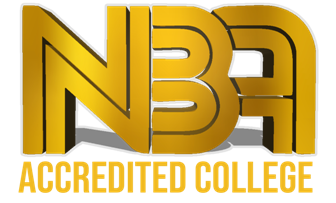Index
- Introduction
- What is an MBA and Why is it Valuable?
- The Financial Investment of an MBA
- Understanding the Potential Career Advancement
- Increased Earning Potential with an MBA
- Conclusion
In today’s dynamic business environment, professionals are constantly seeking ways to stay competitive and advance in their careers. One popular avenue that many individuals consider is pursuing a Master of Business Administration (MBA). In this blog, we will delve into the world of MBA programs and explore the undeniable return on investment, and the ROI of an MBA.
Imagine a scenario where you can acquire a set of valuable skills and knowledge that significantly enhance your career prospects. Picture yourself standing out among your peers, commanding higher salaries, and opening doors to lucrative opportunities. This is precisely what an MBA aims to provide.
Let’s start by exploring the true worth of an MBA and why it commands such great respect in the business community. From there, we will delve into the financial investment required to pursue this degree, weighing the costs against the potential gains. By examining the career advancement opportunities an MBA can unlock, we will uncover the tangible impact it can have on your earning potential.
But the value of an MBA goes beyond monetary gains. We will also delve into how this degree can empower individuals who dream of becoming entrepreneurs, providing them with the necessary skills to establish thriving ventures. Moreover, we will discuss the non-financial benefits, such as personal growth, leadership development, and expanded networks, that can contribute to long-term career satisfaction and fulfillment.
Throughout this blog, we will back our insights with real-life case studies and success stories of MBA graduates who have experienced remarkable financial growth and achieved significant career milestones. By the end, you will have a comprehensive understanding of the ROI of an MBA and be equipped to make an informed decision about whether pursuing this degree aligns with your goals and aspirations.
So, let us embark on this journey of discovering the financial benefits and ROI of an MBA, and explore how this transformative degree can shape your professional trajectory in ways you never thought possible.
What is an MBA and Why is it Valuable?
First off, MBA stands for Master of Business Administration. It’s a postgraduate degree that helps individuals with a wide range of skills and knowledge in various aspects of business environment and management. From finance and marketing to leadership and strategy, an MBA program covers a comprehensive set of subjects designed to prepare you for the challenges of today’s dynamic corporate landscape.
But what sets an MBA apart from other graduate degrees? One word: value. An MBA is highly valued by employers and professionals alike for several reasons. Let’s explore why.
- Broad Skill Set: An MBA provides a holistic understanding of business functions and cultivates essential skills that are highly sought after in the corporate world. From critical thinking and problem-solving to effective communication and teamwork, an MBA program hones your abilities to tackle complex business issues.
- Networking Opportunities: One of the significant advantages of pursuing an MBA is the extensive network you build. MBA programs attract professionals from diverse backgrounds, industries, and countries. This vibrant community allows you to forge valuable connections, exchange ideas, and tap into a vast pool of resources even after graduation. The relationships you build during your MBA journey can play a crucial role in career advancement and future opportunities.
- Credibility and Prestige: The prestige associated with an MBA is hard to ignore. Employers often perceive MBA holders as having a higher level of competence and expertise in the business realm. The rigorous curriculum, renowned faculty, and reputable institutions contribute to the credibility an MBA brings to your professional profile.
- Leadership Development: Many MBA programs place a strong emphasis on leadership development. Through case studies, group projects, and experiential learning, you acquire the skills needed to lead and inspire teams, make strategic decisions, and navigate complex organizational dynamics. These leadership skills are highly valued in managerial roles and can open doors to senior positions.
Now, let’s go through the ROI of an MBA. ROI stands for return on investment, and it’s a critical aspect to consider when contemplating the pursuit of an MBA. While the financial investment required for an MBA can be significant, the potential returns can outweigh the costs over time.
Research consistently demonstrates that individuals with an MBA degree generally earn higher salaries than those without one. The knowledge, skills, and professional connections acquired throughout the program can open doors to improved job prospects and increased earning possibilities. Although the actual return on investment can vary based on factors like industry, experience, and location, obtaining an MBA often brings substantial long-term financial advantages.
Furthermore, an MBA offers intangible returns that extend beyond monetary gain. It can provide personal growth, expanded perspectives, and a deeper understanding of the business world. The confidence and self-assurance gained through an MBA can empower you to take on new challenges and explore entrepreneurial ventures.
To sum up, an MBA holds immense value because it equips you with a wide range of skills, helps you establish valuable connections, boosts your credibility, and nurtures your leadership abilities. When assessing the return on investment of an MBA, it’s crucial to consider both the potential financial advantages and the intangible value it adds to your personal and professional development. If you’re prepared to embark on a life-changing journey that can unlock thrilling career prospects, pursuing an MBA could be the ideal choice for you.
The Financial Investment of an MBA
Embarking on an MBA journey involves more than just dedication and hard work—it also requires a financial commitment. Understanding the financial investment of an MBA is crucial for making an informed decision about pursuing this degree and assessing its return on investment (ROI). So, let’s dive into the world of MBA finances and explore what it entails.
First and foremost, let’s talk about the cost. Pursuing an MBA comes with expenses that extend beyond tuition fees. You need to consider factors such as accommodation, textbooks, study materials, and sometimes even travel expenses if you’re attending a program in a different city or country. These costs can add up, and it’s important to factor them into your financial planning.
Tuition fees vary widely depending on the program and institution. Top-tier universities and prestigious business schools often charge higher tuition fees, reflecting their reputation and the resources they offer. However, there are also more affordable options available, including online and part-time MBA programs, which can be more accessible for individuals with budget constraints.
In addition to the direct costs, you should also consider the opportunity costs associated with pursuing an MBA. This refers to the income you may forgo while studying full-time. If you’re taking a break from your career to pursue an MBA, you need to account for the income you would have earned during that period. This can significantly impact your financial planning and the overall ROI calculation.
Now, let’s talk about funding options. Scholarships and grants are one way to alleviate the financial burden of an MBA. Many institutions offer scholarships based on academic merit, professional achievements, or diversity. It’s worth exploring these opportunities and applying for scholarships that align with your profile and aspirations. Scholarships not only provide financial assistance but also enhance your CV and credibility.
If scholarships are not available or don’t cover the entire cost, student loans can be an alternative. Banks and financial institutions often offer specialized loans for higher education, including MBA programs. However, it’s essential to carefully consider the terms and interest rates associated with these loans to ensure they are manageable in the long run.
Another avenue to explore is employer sponsorship. Some companies recognize the value of an MBA and are willing to support employees pursuing this degree. This can range from partial funding to full sponsorship, where the employer covers all or a significant portion of the tuition fees and related expenses. Employer sponsorship not only eases the financial burden but also demonstrates your commitment to professional development, potentially leading to career advancement within the organization.
When considering the financial investment of an MBA, it’s essential to weigh it against the potential returns. While the immediate cost may seem significant, the long-term financial benefits can outweigh the expenses. MBA graduates often experience higher earning potential, better job opportunities, and faster career progression compared to those without an MBA. These financial gains contribute to the overall ROI of the degree.
However, it’s crucial to note that calculating the ROI of an MBA goes beyond a simple financial equation. The intangible benefits, such as personal growth, expanded networks, and enhanced leadership skills, also play a significant role in your professional journey. These factors contribute to your overall satisfaction and fulfillment, which are essential considerations when assessing the value of an MBA.
In conclusion, pursuing an MBA involves a financial investment that extends beyond tuition fees. Understanding the costs, exploring funding options, and assessing the potential returns are essential steps in evaluating the financial implications of this degree. By carefully considering both the tangible and intangible benefits, you can make an informed decision about pursuing an MBA and confidently embark on a transformative educational journey with a clear understanding of its financial implications and potential ROI.

Understanding the Potential Career Advancement
Understanding the Potential Career Advancement
The potential for growth and progress in your professional journey is one of the key reasons why pursuing an MBA holds immense value. So, let’s explore how the ROI of an MBA can propel your career forward and enhance the transformative educational experience.
An MBA equips you with a diverse set of skills and knowledge that are highly valued in the business world. It provides a comprehensive understanding of various functional areas, such as finance, marketing, operations, and strategy. This broad skill set prepares you to take on multifaceted roles and positions of greater responsibility within organizations.
One of the primary ways an MBA can contribute to career advancement is by expanding your job opportunities. Many employers actively seek MBA graduates for roles that require a strategic mindset, analytical acumen, and leadership capabilities. The prestige associated with an MBA often opens doors to coveted positions and industries that may have been out of reach without this degree.
Moreover, an MBA can accelerate your career progression by fast-tracking you into leadership roles. The leadership development components of an MBA program help you refine your managerial abilities, hone your decision-making skills, and develop a strategic vision. These qualities make you a strong contender for management and executive positions, where the ability to navigate complex business challenges is paramount.
The networking opportunities provided by an MBA program also play a significant role in career advancement. Networking events, alumni networks, and career services offered by MBA programs provide avenues to connect with industry leaders, potential mentors, and recruiters, increasing your visibility and access to desirable career paths.
Now, let’s talk about the financial aspect of career advancement with an MBA. Studies and market research consistently show that MBA graduates tend to earn higher salaries compared to their counterparts without an MBA thus proving the ROI of an MBA. The knowledge, skills, and credibility gained through an MBA program contribute to your market value as a professional. As you progress in your career, the earning potential gap between individuals with and without an MBA becomes more pronounced, enhancing the ROI of your educational investment.
It’s important to note that career advancement goes beyond monetary gains. An MBA also equips you with the tools to pursue opportunities aligned with your passions, interests, and long-term goals. It provides the foundation to transition into new industries, explore entrepreneurial ventures, or even make a positive impact through social entrepreneurship. The broader perspective gained through an MBA can empower you to take calculated risks and seize career opportunities that align with your aspirations.
In conclusion, understanding the potential career advancement that comes with an MBA is crucial when evaluating its ROI. The skills, knowledge, and networks gained through this degree can significantly enhance your marketability, job prospects, and earning potential. Whether it’s climbing the corporate ladder, transitioning to a new industry, or pursuing entrepreneurial endeavors, an MBA equips you with the tools to thrive in a dynamic and competitive business landscape. So, if you’re seeking career advancement and looking to maximize your professional potential, an MBA can be a transformative stepping stone toward achieving your goals.
Increased Earning Potential with an MBA
If there’s one thing that grabs attention when considering an MBA, it’s the prospect of a higher salary and improved financial stability is a significant driver for many individuals pursuing this degree.
The earning potential of an MBA graduate is often higher compared to professionals without an advanced degree. Numerous studies and surveys consistently demonstrate a positive correlation between an MBA and higher salaries. This correlation holds across various industries and job functions, making the financial gains of an MBA a tangible and attractive aspect.
The knowledge and skills acquired through an MBA program are directly applicable to the workplace, and employers recognize their value. The comprehensive understanding of business principles, coupled with specialized knowledge in areas such as finance, marketing, or entrepreneurship, equips MBA graduates with a competitive edge. This expertise makes them eligible for higher-level positions that come with increased compensation.
Additionally, the reputation and credibility of an MBA can significantly impact earning potential. Employers frequently view individuals with an MBA as capable and well-prepared experts – this perception translates into higher starting salaries and greater negotiation power when it comes to compensation packages.
It’s important to note that the increased earning potential associated with an MBA often extends beyond immediate salary bumps. The long-term financial benefits can be substantial. As you progress in your career, the accumulated knowledge, leadership skills, and strategic mindset gained through an MBA contribute to your professional growth trajectory. This can result in faster promotions, access to higher-level positions, and the ability to secure roles with greater responsibility and corresponding financial rewards.
The ROI of an MBA is further amplified when you consider the potential for a return on your investment over time. While there may be initial costs involved, such as tuition fees and living expenses, the long-term financial gains can outweigh these expenses. MBA graduates typically experience a higher salary growth rate compared to professionals without an advanced degree, resulting in a considerable financial advantage throughout their careers.
However, it’s essential to recognize that the increased earning potential with an MBA is not guaranteed. The actual impact on your salary will depend on various factors such as industry, location, experience, and individual performance. The ROI of an MBA also extends beyond monetary gains and encompasses factors such as job satisfaction, career progression, and personal fulfillment.
In conclusion, pursuing an MBA can significantly enhance your earning potential. The knowledge, skills, credibility, and networking opportunities gained through this degree make you a desirable candidate for higher-paying positions and advancement in your career. The financial benefits, both in the short and long term, play a significant role ROI of an MBA, making it an attractive investment for those who want to maximize their earning potential. So, if your goal is to advance in your career and achieve financial stability, choosing to pursue an MBA can be a smart and calculated move. It can open up doors to rewarding opportunities, paving the way for a prosperous and satisfying future.

Conclusion
In the pursuit of professional growth and personal fulfillment, an MBA offers a compelling proposition. Throughout this exploration of the ROI of an MBA, we’ve uncovered the numerous ways in which this degree can enhance your career prospects, financial stability, and overall satisfaction.
The ROI of an MBA extends far beyond monetary gains, although the increased earning potential is undoubtedly a significant aspect. The knowledge, skills, and networks acquired through an MBA program provide a solid foundation for career advancement and open doors to new opportunities. The credibility and prestige associated with an MBA can give you a competitive edge in the job market, making you a desirable candidate for higher-paying positions.
However, it’s important to consider the broader benefits of an MBA. The intangible returns, such as personal growth, expanded perspectives, enhanced leadership abilities, and a strong professional network, contribute to your overall career satisfaction and fulfillment. The ROI of an MBA encompasses not only financial gains but also the invaluable experiences and connections that can shape your professional trajectory.
As you contemplate pursuing an MBA course, take the time to evaluate your personal goals, circumstances, and aspirations. Consider the financial investment required and weigh it against the potential returns. Reflect on the long-term impact on your career growth, job satisfaction, and personal development.
Remember, an MBA is not a one-size-fits-all solution. It requires dedication, commitment, and a genuine passion for continuous learning and growth. It’s a transformative journey that demands your full investment, both financially and intellectually.
Ultimately, the decision to pursue an MBA rests in your hands. It’s about aligning your ambitions with the opportunities that lie ahead. By carefully assessing the potential ROI, you can make an informed choice that aligns with your aspirations and maximizes your chances for success.
So, if you’re ready to embark on a transformative educational experience, one that offers the potential for increased earning power, expanded career opportunities, and personal growth, an MBA may be the path for you. Invest in yourself, seize the opportunities that arise, and unlock the doors to a future that is both rewarding and fulfilling.


